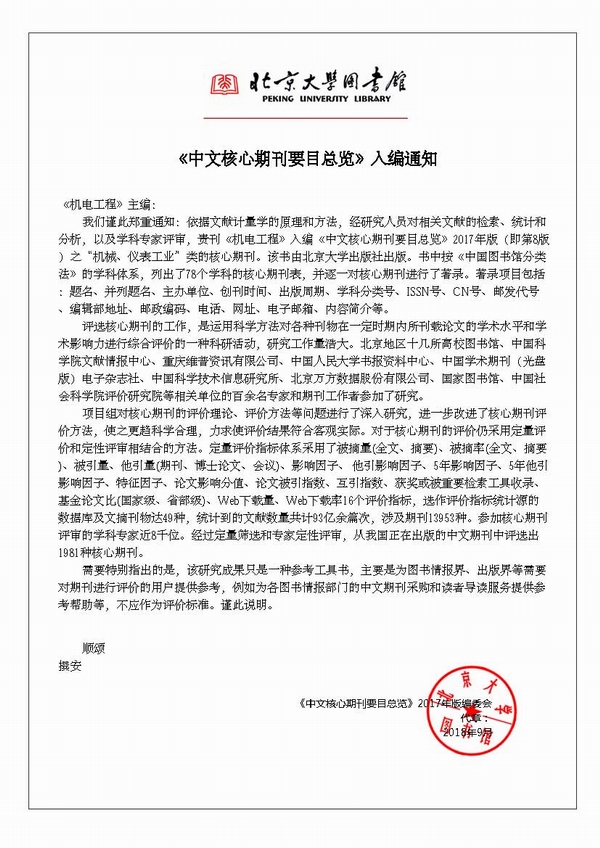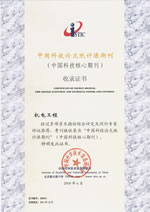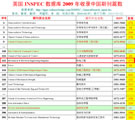
Founded in 1971 >
Chinese Sci-tech Core Periodicals >
British Science Abstracts (SA, INSPEC) Indexed Journals >
United States, Cambridge Scientific Abstract: Technology (CSA: T) Indexed Journals >
United States, Ulrich's Periodicals Directory(UPD)Indexed Journals >
United States, Cambridge Scientific Abstract: Natural Science (CSA: NS) Indexed Journals >
Poland ,Index of Copernicus(IC) Indexed Journals >
International Standard Serial Number:
ISSN 1001-4551
Sponsor:
Zhejiang University;
Zhejiang Machinery and Electrical Group
Edited by:
Editorial of Journal of Mechanical & Electrical Engineering
Chief Editor:
ZHAO Qun
Vice Chief Editor:
TANG ren-zhong,
LUO Xiang-yang
Tel:
86-571-87041360,87239525
Fax:
86-571-87239571
Add:
No.9 Gaoguannong,Daxue Road,Hangzhou,China
P.C:
310009
E-mail:
meem_contribute@163.com
Finite element simulation of the minimum chip thicknessin micro-machining based on energy
ZHOU Chun-jiang1, LIU Jian-cheng2, JIN Ji-min1
(1.School of Intellectual Manufacture, Zhejiang Institute of Mechanical and Electrical Engineering, Hangzhou
310053,China; 2.School of Computer and Engineering, University of Pacific,Stockton CA95211 USA)
Abstract: Aiming at the minimum chip thickness which affected the quality and stability in micro-machining, the model creation and the estimation of value in different machining condition for the minimum chip thickness were studied. The position and force condition of stagnant point on the contact surface between the workpiece and the radius of cutting tool in the process of micro-machining were analyzed. The calculation formula of the minimum chip thickness was created from the view of the minimum energy. The finite element simulation model of orthogonal machining was established and the constitutive model of material was identified. The finite element simulation of element energy on the contact surface between the workpiece and the radius of cutting tool was carried out by using the ABAQUS software. The results indicate that there is a stagnant area which has little energy on the contact surface of workpiece and the radius of cutting tool, the minimum chip thickness in certain machining condition can be estimated according to the position of the stagnant area. The friction coefficient of workpiece and tool is the important factor which affects the minimum chip thickness.
Key words: the minimum chip thickness; internal energy; ABAQUS; finite element simulation








